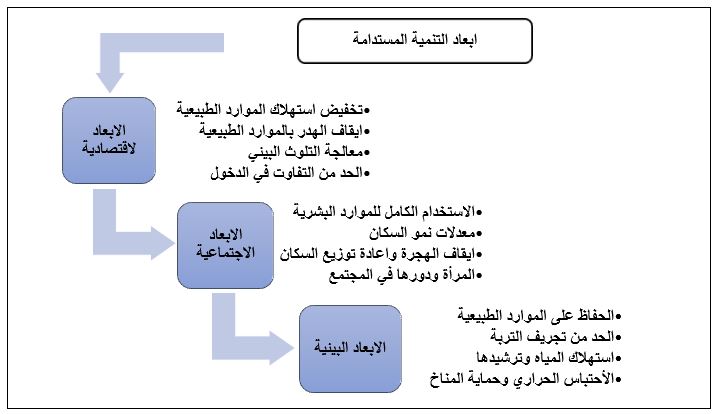The impact of economic reform policies on some sustainable development indicators in Iraq for period (2004-2022)
DOI:
https://doi.org/10.71207/ijas.v21i83.3300Keywords:
Economic reform, sustainable development, unemployment rates, economic growth.Abstract
The study aimed to analyze and measure the impact of economic reform policies and some sustainable development indicators in Iraq on the average per capita share of the gross domestic product (GDP), which expresses economic growth and the sustainability of development for the period (2004-2022). These indicators were represented by the average per capita share of pollution due to toxic carbon dioxide emissions, the ratio of commodity exports to imports, the ratio of spending on research and development to the gross domestic product, and unemployment rates. The researcher used the descriptive analytical approach in addition to economic measurement in addressing the research problem. The research reached a set of conclusions, the most important of which was that economic reform policies contribute to achieving specific goals represented in optimal investment and the sound distribution of economic resources and directing them to the most effective areas of economic activity that best achieve the requirements of stability and economic growth. The research came out with a set of recommendations, the most important of which was the necessity of taking into account the gradualness of reforms and taking into account the social dimension of any structural policy in the economy to ensure the satisfaction of basic needs in society and combating unemployment and poverty.
References
إسماعيل، عبد الرحمن. (2004). مفاهيم ونظم اقتصادية، التحليل الاقتصادي الكلي والجزئي، دار وائل للنشر والتوزيع، الطبعة الأولى، الأردن، عمان.
البنك المركزي العراقي. (2024). التقارير السنوية لعدة سنوات، منوفر على الرابط: https://cbi.iq/page/150 تم الحصول عليه بتاريخ 1/2/2025
الربيعي، هشام سالم. (2002). أثر العامل السكاني في التنمية المستدامة في بلدان الآسكوا، رسالة ماجستير، جامعة بغداد، كلية الإدارة والاقتصاد.
العاني، أسامة عبد المجيد. (2000). أثر برامج التثبيت الاقتصادي والتكييف الهيكلي في تعميق مشكلة الفقر في أقطار عربية مختارة, منظمة الوحدة الاقتصادية العربية , السنة الثانية عشر, العدد20, القاهرة.
عبد العزيز، إكرام. (2002). الإصلاح المالي بين نهج صندوق النقد الدولي والخيار البديل، بيت الحكمة، ط1، بغداد.
عبد الغني، محمد فتحي. (2020). تطور مفهوم التنمية المستدامة وأبعاده ونتائجه في مصر، المجلة العلمية للاقتصاد والتجارة.
علي، عدنان عباس (2002). الأساس النظري لبرامج التصحيح الاقتصادي المدعومة من قبل صندوق النقد الدولي، مجلة العلوم الاجتماعية، المجلد (30)، العدد (4).
غنيم وأبو زنط, عثمان محمد وماجدة. (2010). التنمية المستدامة فلسفتها وأساليب تخطيطها وأدوات قياسها، الطبعة الأولى، دار صفاء للنشر والتوزيع، عمان.
قاسم، منى. (1998). الإصلاح الاقتصادي في مصر ودور البنوك في الخصخصة وأهم التجارب الدولية، الدار المصرية اللبنانية، القاهرة.
الكبيسي، عامر خضير وآخرون (2019). دراسات حول مداخل التنمية المستدامة، الرياض، دار جامعة نايف للعلوم الأمنية.
الكبيسي، لورنس يحيى صالح. (2005). التنمية البشرية المستدامة في ظل العولمة الاقتصادية في الدول النامية، اطروحة دكتوراه، كلية الإدارة والاقتصاد، جامعة بغداد.
محمد، علاء جاسم. (2018). أثر سياسات الإصلاح الاقتصادي على البطالة والفقر في العراق، دراسة حالة، المجلة العلمية للدراسات التجارية والبيئية، جامعة قناة السويس، المجلد التاسع، العدد الثالث، الجزء الثاني يوليو 2018، القاهرة، الصفحات (1-22).
مراد، ناصر. (2009). التنمية المستدامة وتحدياتها في الجزائر، مجلة بحوث اقتصادية عربية، مركز دراسات الوحدة العربية، 18(46)، 105-126.
ناصر عبيد الناصر. (2005). سياسات الإصلاح وإصلاح السياسات الاقتصادية في الوطن العربي, مؤتمر الإصلاح الاقتصادي والسياسي في الوطن العربي ودور الأسواق المالية في التنمية الاقتصادية, المجلس الأعلى لرعاية الفنون والآداب والعلوم الاجتماعية، دمشق.
الهيتي، نوزاد عبد الرحمن. (2008). التنمية المستدامة: الإطار العام والتطبيقات، دار الكتاب القطرية، قطر.
وزارة التخطيط/ الجهاز المركزي للإحصاء، مديرية الحسابات القومية. (2024). المجموعة الإحصائية السنوية، سنوات متفرقة، متوفر على الرابط: https://www.cosit.gov.iq/ar/national-accounts تم الحصول عليه بتاريخ 1/2/2025.
وزارة المالية/ دائرة الموازنة. (2024). قانون الموازنة العامة الاتحادية لجمهورية العراق لسنوات متعددة، متوفر على الرابط: https://www.mof.gov.iq/pages/ar/FederalBudgetLaw.aspx تم الحصول عليه بتاريخ 1/2/2025.
United nation. (2021). analysis of the sustainable development Indicators in the OECD countries ,New York,UN.
World Bank Data. (2024). General Data, available at: https://microdata.worldbank.org/index.php/home , Retrieved 2/3/2025.

Downloads
Published
How to Cite
Issue
Section
License
Copyright (c) 2025 College of Administration and Economics - University of Kerbala

This work is licensed under a Creative Commons Attribution-NonCommercial-NoDerivatives 4.0 International License.
Authors retain the copyright of their papers without restrictions.









